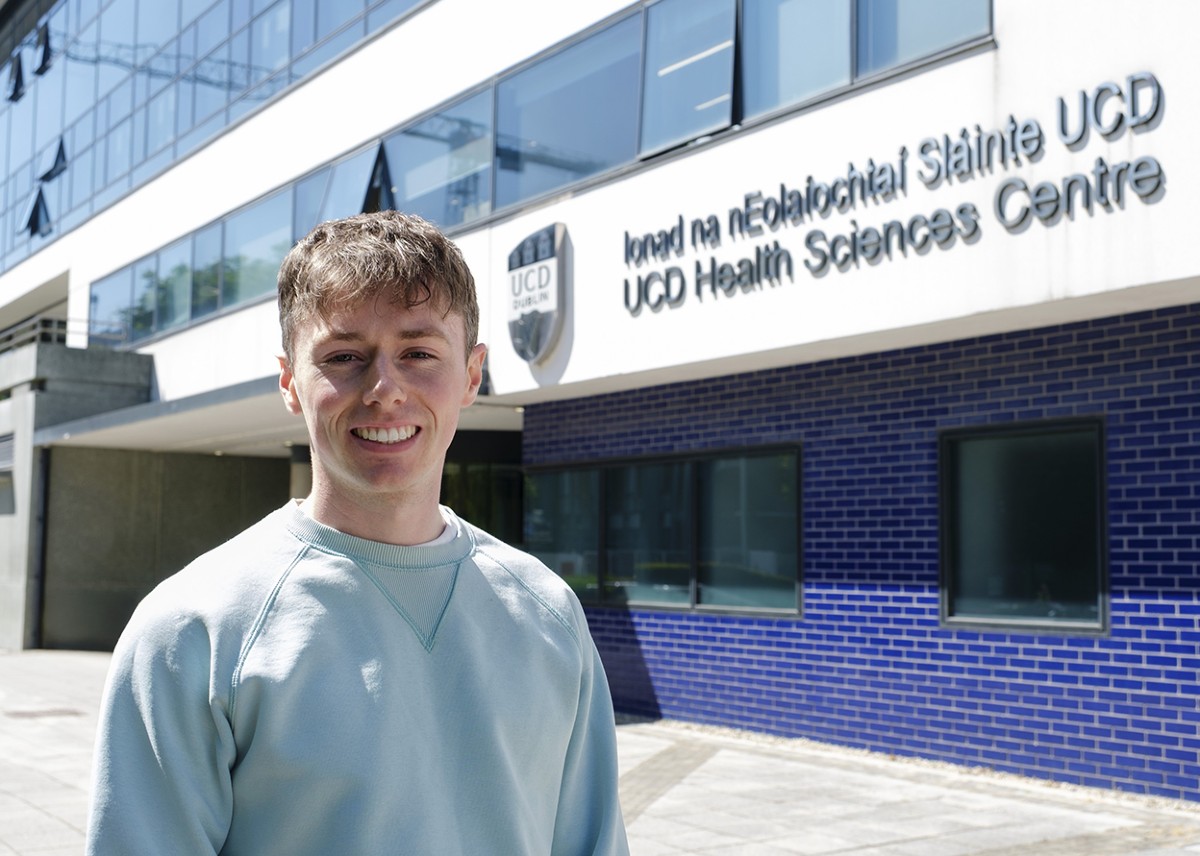
Rory Lambe recommends finding a community and establishing clear work–life boundaries to make PhD life more fun.Credit: Vincent Hoban/UCD
Sarah looked horrified. She was nearing the end of her PhD, and I had asked her how it was going. I had assumed she would be excited to finish. Instead, she explained that ahead of her lay the end of funding, no job offers and the ache of leaving friends behind to move home. We were used to comparing pain: in the same month that Sarah was facing her future, I was juggling four studies, two ethics applications, three assignments and an important upcoming exam. I, too, felt I was at breaking point.
I’m in the second half of my PhD at University College Dublin, developing a machine-learning model that uses data from wearable sensors to assess heart health. I’m passionate about the technology’s potential to transform cardiovascular care — but passion had turned to pressure. The harder I worked, the more impossible progress seemed. The wall I was trying to climb felt taller by the day.
In my conversation with Sarah, a strong realization struck me. The finishing line that we race towards offers only an illusion of relief. Really, it’s a shift in perspective that we need — a pause and a breath that lets us rediscover joy in the journey. Here are five ways I’ve managed to achieve just that.
Knit your own community
My friend Giulio studies the general theory of relativity — specifically, a variation involving something called asymptotically anti-de Sitter space-time. He is also an avid knitter. The beauty of knitting, according to Giulio, is that it has absolutely nothing to do with general relativity. But what he enjoys most is the friendship it fosters. His knitting club includes some of his closest friends, all of whom he met after he moved to Ireland from his native Italy.
The importance of having a genuine community cannot be overstated. The warmth of like-minded friends kindles my heart at the best of times and gave me a shoulder to lean on when Reviewer 2 dismissed six months of my work. These connections are hard to build on online platforms such as LinkedIn or Zoom, so I make an extra effort to get to the office in the morning rather than working alone from home. When it’s sunny, I suggest a short walk to those sitting around me, and I say ‘yes’ when a colleague whom I might not know that well invites me for coffee.
I’ve learnt that taking an interest in others is key when it comes to building community. When I first joined my research centre, I made a concerted effort to remember just a few important details about people’s lives — such as a specific task they were working on, or their plans for the coming weekend. I am always greeted with a smile when I ask how it went.
Establish clear work boundaries
Working late, or even at the weekend, might be unavoidable when demands are at their highest, but it should not become the norm. I learnt this the hard way. In the early stages of writing my systematic review, I completed more tasks when I worked for longer — but it was a path to burnout.
Without a true weekend rest, by Wednesday or Thursday, I would feel as if I had been thrown around in a washing machine. Now, I choose quality of work over quantity.
And as for those e-mail notifications that ping late at night? I saved myself so much heartache when I muted my phone’s notifications in the evenings. It can save you, too.
Routine and resilience can lower stress levels
Similarly, flexible working hours can quickly turn from friend to enemy if not treated with respect. Flexible schedules are beneficial, but those benefits are best when used sparingly. I found that disregarding my nine-to-five simply led to late nights and weekend work. My body and mind thrive with routine. This routine is grounded in a consistent sleep schedule, and helps me to be resilient to stressful situations.
Responding positively to scenarios that can cause stress is a crucial skill and, to my surprise, I have found that I have much more control over this than I realized. I spent time working in a hospital, and I used to become frustrated when I was frequently contradicted by a senior staff member. However, stepping back from situations such as these and giving my thoughts some extra space facilitated a calmer and more assured response. Each morning, I would do ten minutes of mindfulness. This greatly calmed the traffic in my mind and allowed me to detach whenever I was caught up in it.


